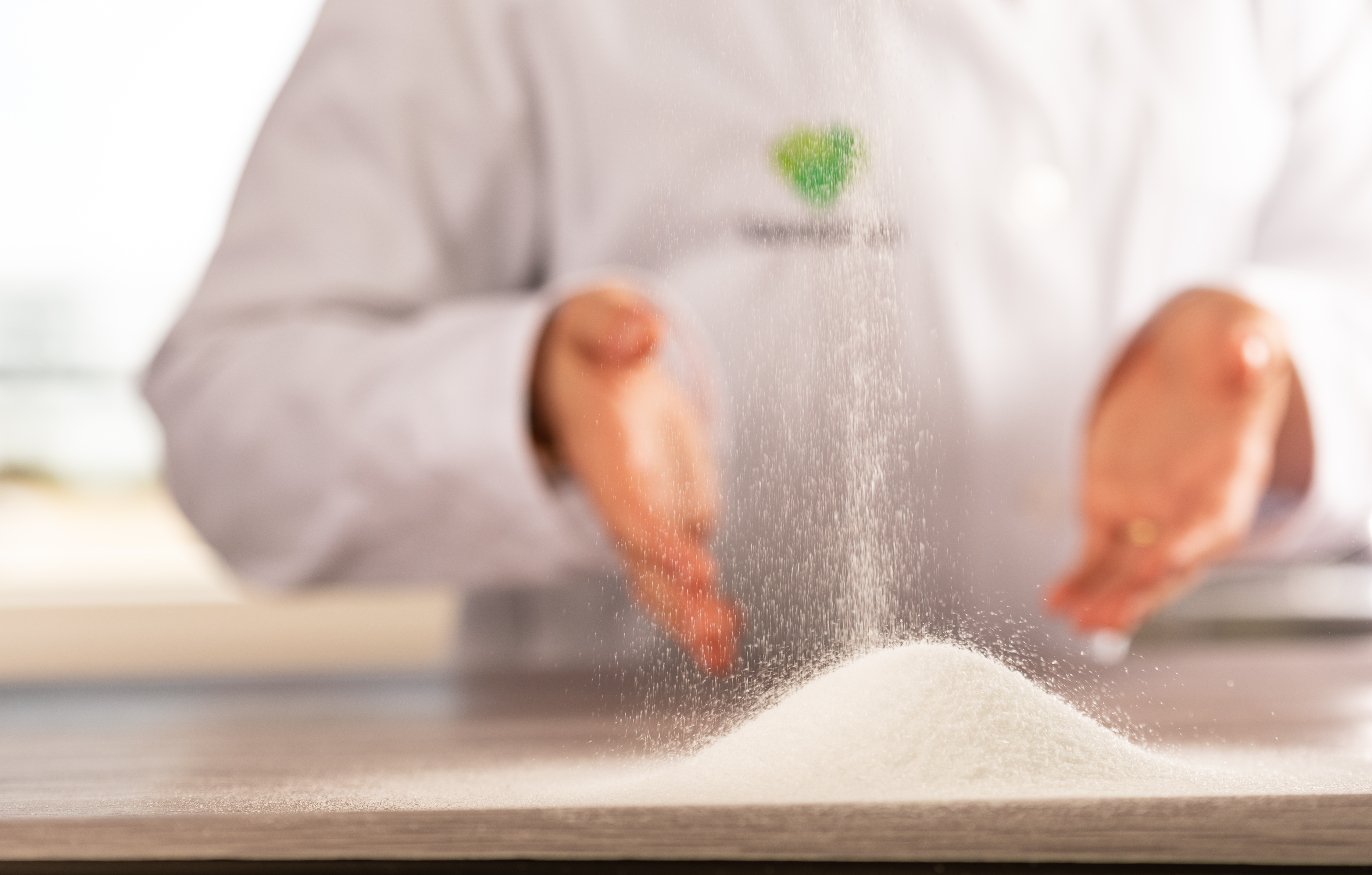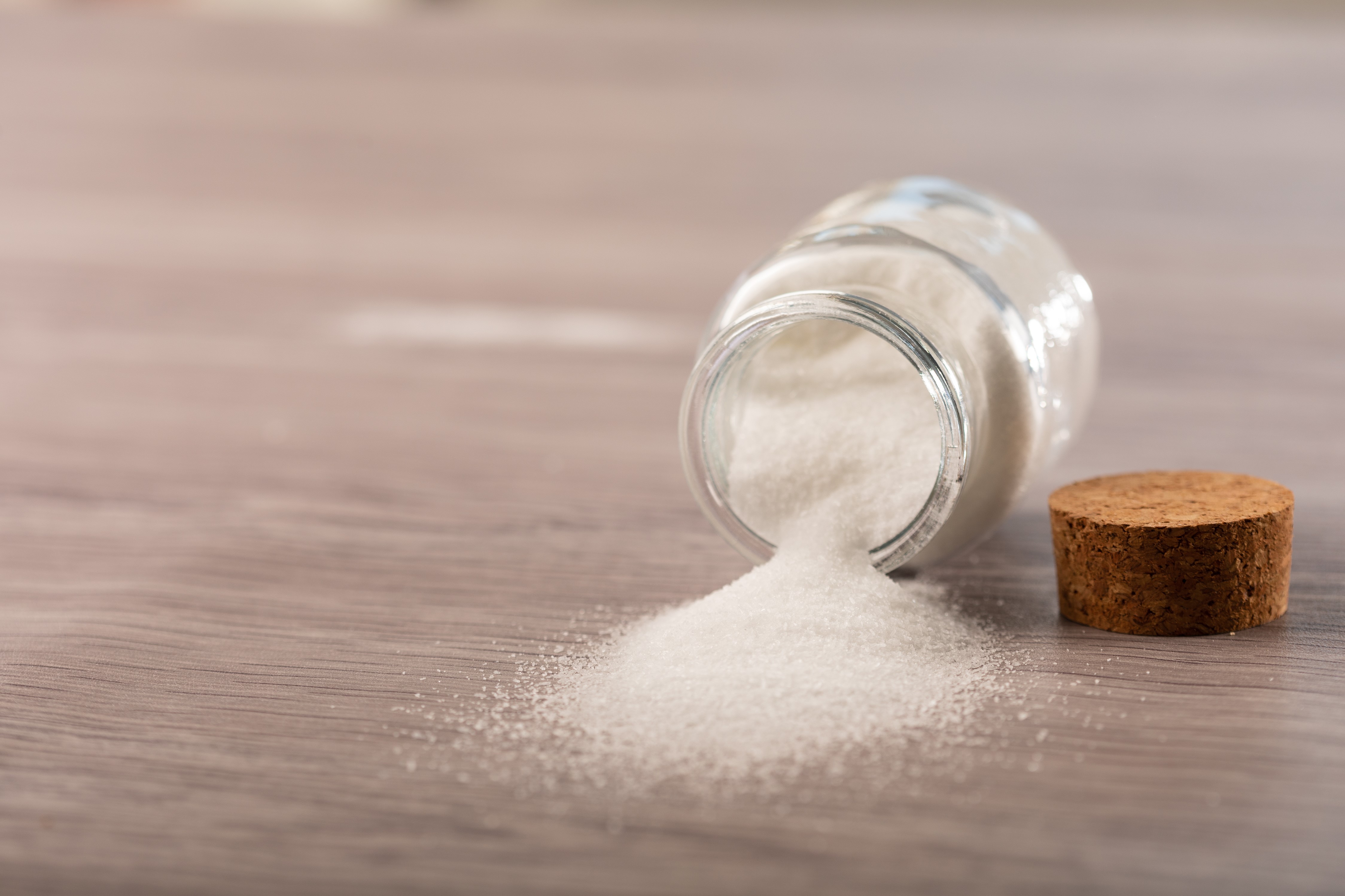Calorific value kcal/g
Glycaemic index
Insulin index
Sweetness
Our allulose
We obtain our allulose from the fructose in non-genetically modified, renewable raw materials, such as sugar beet. In our product portfolio, we offer crystalline allulose. What makes allulose so attractive is that with 0.2-0.4 kcal/g, it has only a tenth of the calories of table sugar, but as real sugar. Its chemical properties and technical characteristics mean that allulose can be used in a variety of ways in food and beverages. In nature, allulose occurs in dried figs, kiwis, and raisins.
Real sugar without calories

- Monosaccharide & epimer of fructose
- Reducing sugar → maillard reaction = browning effect
- Solubility comparable to that of sucrose
- 100% biodegradable
- Calorific value: 0.2-0.4 kcal/g
- Glycaemic Index: 1
- Insulin index: 1.5

- Good tolerance (guideline daily consumption: 0.8 g per kg body weight)
- Sweetness: 60-70 % compared to sucrose
- Positive influence on the product texture and mouth feeling
- Body-giving in the final product
- Can be used in various food applications, e.g. baked goods, confectionary, beverages, sauces, ketchup, ice cream, fruit formulations
- GMO-free, made in Germany
Is allulose biodegradable?
The test to determine the biodegradability of allulose was conducted ... read moreThe test to determine the biodegradability of allulose was conducted by an accredited contract laboratory in accordance with an internationally recognised OECD testing method: the Zahn-Wellens-Test (method: 302 B: 1992). The Zahn-Wellens test is described in the Test Methods Regulation (EC) No. 440/2008, Part C, Method C.9 for the Registration, Evaluation, Authorisation and Restriction of Chemicals (REACH).
The test results showed that allulose is 100 % biodegradable. This means that allulose is 100 % utilised and does not remain as a solid.
Is allulose gluten free?
Our Allulose is gluten-free...read moreOur allulose is gluten-free.
In no part of our operations do we use or add wheat, rye, barley, oats, or any of their by-products. We would be happy to send you a copy of our gluten statement if required.
Is allulose available as an organic product?
Following the entry into force of the new European organic regulation ... read moreFollowing the entry into force of the new European organic regulation VO (EU) 2018/848 on 01.01.2022, the production of organic food using ion exchange and absorption resin processes is only possible in exceptional cases (art. 23 Regulation (EU) 2020/464 and art. 7 Regulation (EU) 2018/848). Currently, the production of allulose is not feasible without the use of these processes.
For this reason, we are unfortunately unable to offer organic allulose in the EU.
Is allulose safe for dogs?
Scientific studies show that allulose is well tolerated by dogs ... read moreScientific studies show that allulose is well tolerated by dogs, mice and rats. Unfortunately, we do not have any data on tolerance in cats and other pets. Therefore, we advise caution here.
Funding project
SAVANNA is engaged in work on functional carbohydrates, in particular allulose, and was supported by a publicly sponsored project. The Federal Ministry of Food and Agriculture in Germany is supporting the research project in the context of a national initiative to reduce the consumption of fat, salt and sugar.
 „Was sponsored by the Federal Ministry of Food and Agriculture by resolution of the German parliament.“
„Was sponsored by the Federal Ministry of Food and Agriculture by resolution of the German parliament.“
Your contact
Photo credits
All pictures: © SAVANNA Ingredients







